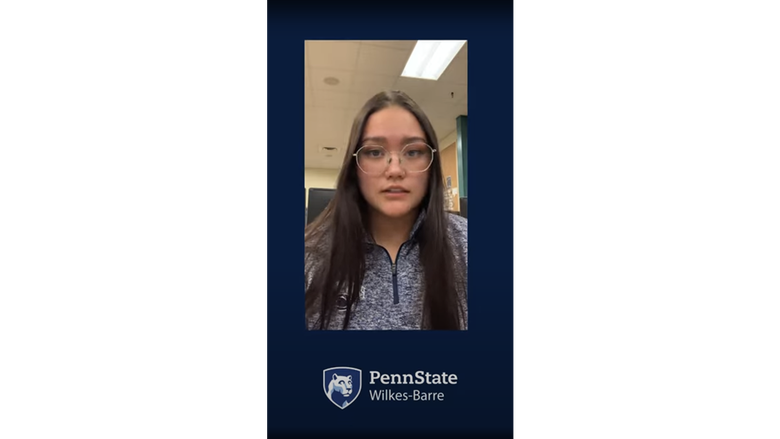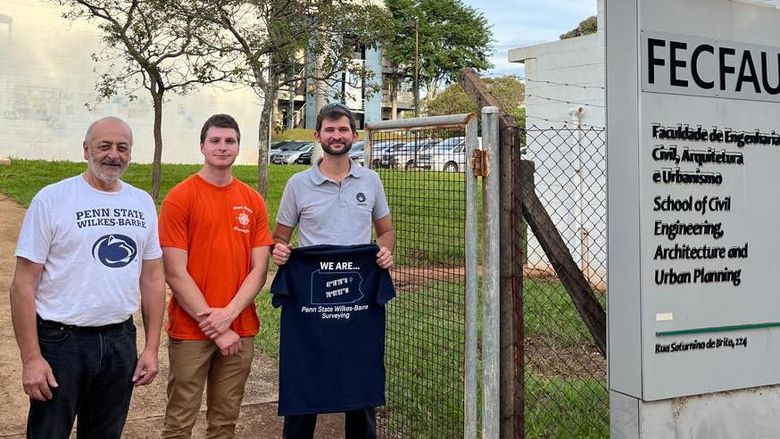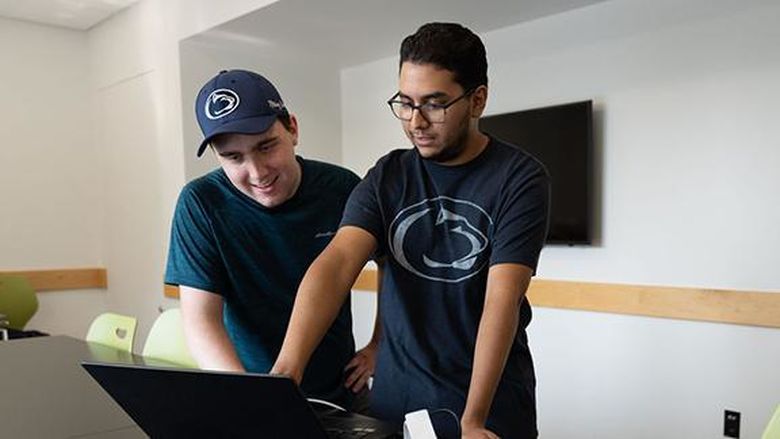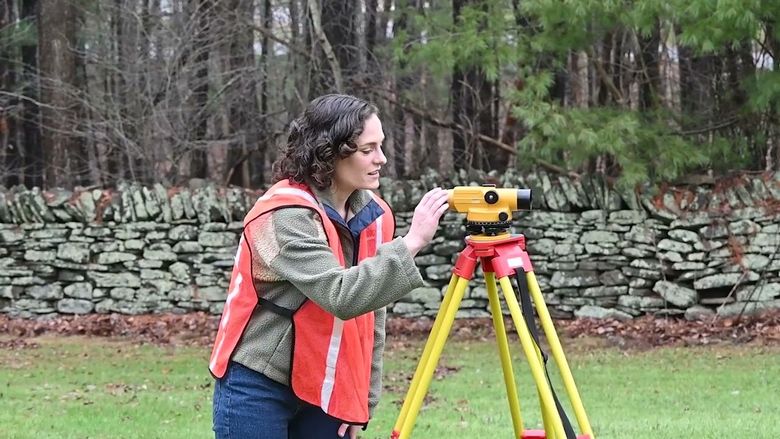The baccalaureate (bachelor’s) degree program in Surveying Engineering was developed with the help of the Board of Directors of the Pennsylvania Society of Land Surveyors, and was created in response to the increasing need for specialists in capturing, processing, and managing geospatial data.
Request information about the
Surveying Engineering Program
The Surveying Engineering major provides a basic undergraduate education required for private and public service in the profession of surveying. Particular emphasis is placed on fundamental surveying principles required in all areas of surveying. Instruction is provided in the main divisions of surveying, including land surveying, mapping, photogrammetry, data analysis and adjustment, geodesy and map projection coordinate systems, remote sensing, geographic information systems, and land development. Students study various data collection techniques using surveying tools including total stations, levels, softcopy photogrammetry, satellite imagery, and the global navigation satellite system (GNSS). They also study legal principles related to land surveying, professional ethics, applications for Geographic Information Systems (GIS) in surveying, and data management techniques. Through the use of projects and capstone courses students will design measurement systems, alignments, land information systems, and land development.
Program Educational Objectives
The Surveying Engineering program prepares students with technical and professional skills for professional practice. Within three to five years of graduation, our Surveying Engineering graduates will have:
- Forged careers as surveyors, engineers, and/or managers within surveying, engineering, or related fields, whether in the private or public sector, actively contributing to business operations.
- Demonstrated expertise in using mathematics, scientific principles, measurement techniques, and contemporary technology tools in surveying for proficiently collecting and analyzing spatial data, as well as for developing surveying and/or engineering design solutions for practical applications.
- Exhibited a strong commitment to ethical and professional conduct, consistently adhering to industry standards and ethical principles across all aspects of their professional work.
- Demonstrated effective communication skills in written, verbal, and graphic forms, enabling them to articulate technical and non-technical concepts to diverse audiences.
- Worked collaboratively within multidisciplinary teams, showcasing their ability to function as productive team members, lead projects, respect diverse perspectives, and contribute to team success.
- Engaged in continuous professional development, including pursuing advanced degrees, pursuing professional certification(s) and/or licensure, or participating in professional organizations, to stay current in the field, enhance their knowledge and skills, and share that with the professional community.
Student Outcomes
Student outcomes are those skills and capabilities that are the foundation on which those achievements can be built. Stated differently, student outcomes are the talents, skills, and capabilities that should be imparted to students so that, when they graduate from the SUR E program, they are well equipped to succeed at their chosen careers. The SUR E program has identified seven student outcomes that provide that foundation. Those outcomes state that at time of graduation the students will be able to demonstrate:
- an ability to identify, formulate, and solve complex engineering problems by applying principles of engineering, science, and mathematics
- an ability to apply engineering design to produce solutions that meet specified needs with consideration of public health, safety, and welfare, as well as global, cultural, social, environmental, and economic factors
- an ability to communicate effectively with a range of audiences
- an ability to recognize ethical and professional responsibilities in engineering situations and make informed judgments, which must consider the impact of engineering solutions in global, economic, environmental, and societal contexts
- an ability to function effectively on a team whose members together provide leadership, create a collaborative and inclusive environment, establish goals, plan tasks, and meet objectives
- an ability to develop and conduct appropriate experimentation, analyze and interpret data, and use engineering judgment to draw conclusions
- an ability to acquire and apply new knowledge as needed, using appropriate learning strategies
Enrollment and Graduation Data
- Undergraduate enrollment in Surveying Engineering
- Undergraduate degrees awarded in Surveying Engineering
Please note: Many U.S. states and territories require professional licensure/certification for employment in the field of surveying. If you plan to pursue employment in a licensed profession after completing this program, please visit the Professional Licensure/Certification Disclosures by State interactive map for licensing information by location.
The Bachelor of Science in Surveying Engineering at Penn State Wilkes-Barre is accredited by the Engineering Accreditation Commission of ABET, https://www.abet.org, under the commission’s General Criteria and Program Criteria for Surveying and Similarly Named Engineering Programs.









